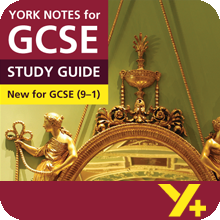Examiner's Notes
You assessed this answer as Grade 4.
Hover over the highlighted text to read the examiner’s comments.
Question: Read from: ‘“Let me be rightly understood”’ to ‘“if your nephew does not object to them, they can be nothing to you”’ (Vol. 3, Ch. 14). In this extract, Lady Catherine states her objections to Elizabeth marrying Darcy.
Starting with this extract, explore how Austen presents the relationships between Lady Catherine and Elizabeth.
Write about:
- how Austen presents Lady Catherine’s feelings in this extract
- how Austen presents the relationship between Lady Catherine and Elizabeth in the novel as a whole.
The scene is a defining moment in Austen’s telling of the story. The confrontation of Lady Catherine and Elizabeth is like a battle between the old and the new, when selfish arrogance meets true gentility. It represents, in microcosm, the defining themes of the novel, but more specifically, allows us to see Lady Catherine revealed as the arrogant and cruel snob she really is.
Lady Catherine’s patronising but ignorant self-importance has already been comically exposed in Elizabeth’s visits to Rosings, but here her character is revealed by Austen in all its viciousness. She arrives confident in her demand that Elizabeth should deny any intention of marrying Darcy but when Elizabeth refuses, Austen presents Lady Catherine as resorting to threats, ‘You will be censured, slighted and despised’. This pattern of three adjectives is an attempt to hammer home Elizabeth’s potential shame.
Rhetorical language is Lady Catherine’s strong point. She likes to hear herself speak and once she has found a certain rhythm or sentence style she finds it hard to stop. Look, for instance, at the sequence of four rhetorical questions beginning ‘Do you pay no regard to the wishes of his friends? They could be real questions if Lady Catherine ever paused for an answer but she does not. She doesn’t expect answers, let alone contradictions, so, when Elizabeth does reply, calmly and rationally, Lady Catherine is shocked. ‘Now what have you to say?’ she asks when she asserts Darcy’s engagement to her daughter. Clearly she assumes that Elizabeth will say nothing. However, it is she who has no answer to Elizabeth’s logical response. Austen makes silence explicit; ‘Lady Catherine hesitated for a moment’.
During Elizabeth’s visits to Rosings there have been plenty of indications that neither logic nor manners are among Lady Catherine’s strong points. Even in the minor episode of after-dinner music she has shown her stupidity and conceit. She claims that there are ‘few people in England’ who have ‘more true enjoyment’ of music than she does, and she knows she would have been ‘a great proficient’ - except she has never learned. We, the readers, view Lady Catherine through the narrator’s ironic gaze and can assume that Elizabeth also notices that ‘Mr Darcy looked a little ashamed of his aunt’s ill-breeding.’
‘Pride and Prejudice’ has links to the eighteenth-century novel of manners and the concept of true gentility is one of its main themes. The example of Lady Catherine shows that there is no inevitable link between gentility and high social class.
Lady Catherine’s attempt to bully Elizabeth on her visit to Longbourn is blacker comedy. It comes at a time when Elizabeth is, paradoxically, both more sure of herself and more vulnerable. At Rosings she was able, had she needed to, to place Mr Darcy and his aunt together in the same rich-and-arrogant bracket. Wickham had encouraged this. She could therefore see the ridiculous aspects of Lady Catherine and feel amused, as she had no reason to care for her opinion.
Now the situation is different: Elizabeth knows that she loves Darcy and she also knows that he knows the worst of her family. She does not know what Darcy feels about his aunt or how much he cares about her. Her defiance of Lady Catherine is correspondingly heroic; ‘Whatever my connections may be,’ says Elizabeth, ‘if your nephew does not object to them, they can be nothing to you.’ This is a clear and controlled sentence but it still contains uncertainty in the single word ‘if’.
Finally, it is structurally brilliant of Austen to make Elizabeth’s defiance the catalyst that encourages Darcy to propose again. Lady Catherine prides herself on her ‘frankness’, which in her case means rudeness, but Darcy knows that for Elizabeth it means honesty. ‘Had you been [...] decided against me, you would have acknowledged it to Lady Catherine frankly.’ And she replies ‘Yes, you know enough of my frankness to believe me capable of that.’ Lady Catherine’s usefulness can become a joke between them ‘and that should make her happy for she loves to be of use.’ Her stature has been reduced from bully to go-between.
